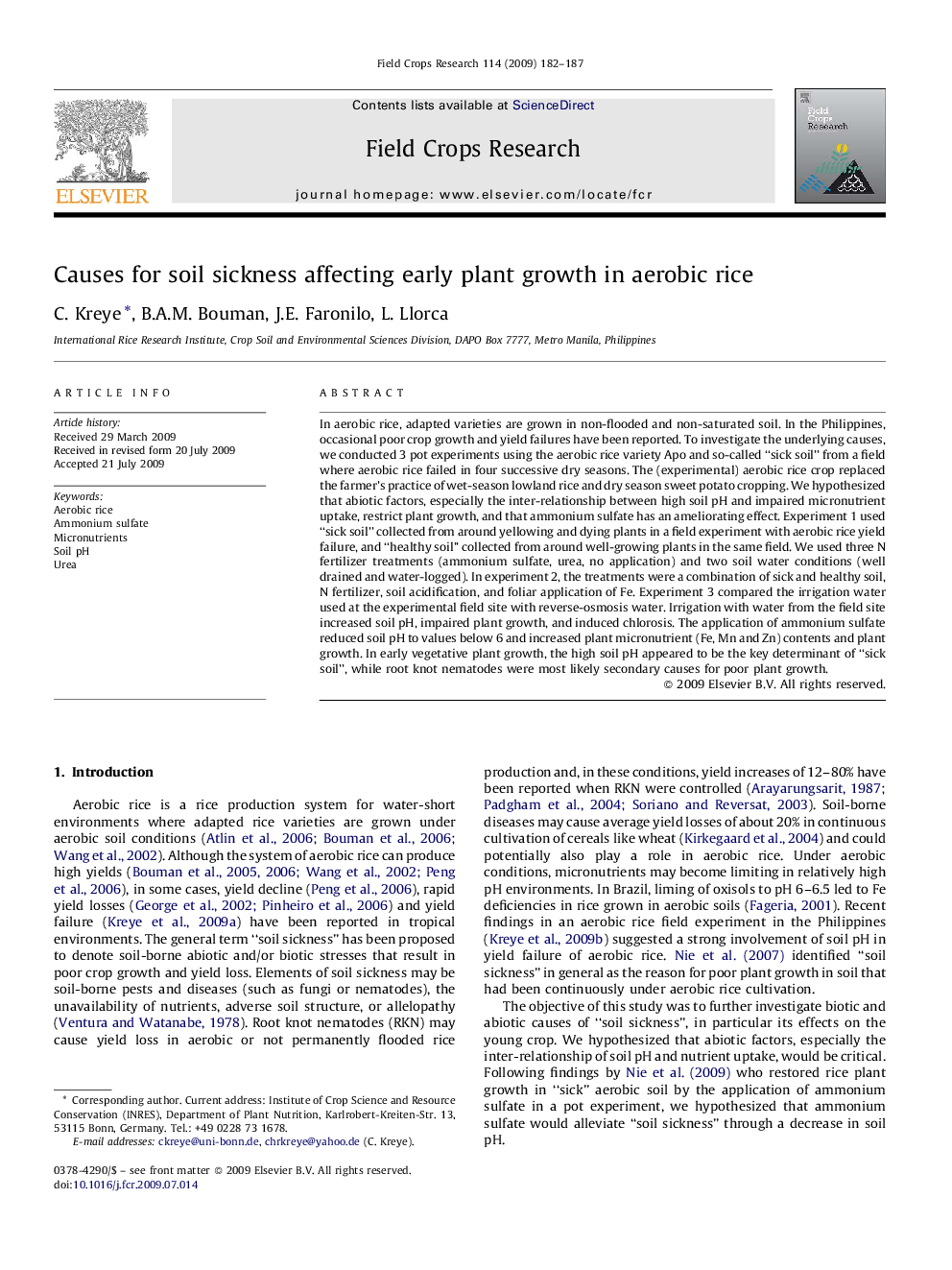| Article ID | Journal | Published Year | Pages | File Type |
|---|---|---|---|---|
| 4511107 | Field Crops Research | 2009 | 6 Pages |
In aerobic rice, adapted varieties are grown in non-flooded and non-saturated soil. In the Philippines, occasional poor crop growth and yield failures have been reported. To investigate the underlying causes, we conducted 3 pot experiments using the aerobic rice variety Apo and so-called “sick soil” from a field where aerobic rice failed in four successive dry seasons. The (experimental) aerobic rice crop replaced the farmer's practice of wet-season lowland rice and dry season sweet potato cropping. We hypothesized that abiotic factors, especially the inter-relationship between high soil pH and impaired micronutrient uptake, restrict plant growth, and that ammonium sulfate has an ameliorating effect. Experiment 1 used “sick soil” collected from around yellowing and dying plants in a field experiment with aerobic rice yield failure, and “healthy soil” collected from around well-growing plants in the same field. We used three N fertilizer treatments (ammonium sulfate, urea, no application) and two soil water conditions (well drained and water-logged). In experiment 2, the treatments were a combination of sick and healthy soil, N fertilizer, soil acidification, and foliar application of Fe. Experiment 3 compared the irrigation water used at the experimental field site with reverse-osmosis water. Irrigation with water from the field site increased soil pH, impaired plant growth, and induced chlorosis. The application of ammonium sulfate reduced soil pH to values below 6 and increased plant micronutrient (Fe, Mn and Zn) contents and plant growth. In early vegetative plant growth, the high soil pH appeared to be the key determinant of “sick soil”, while root knot nematodes were most likely secondary causes for poor plant growth.
